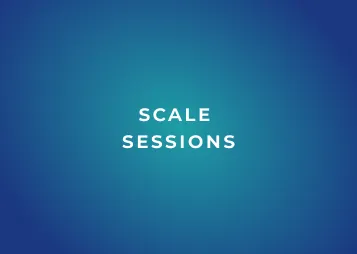60-Second Summary
Scaling sales coaching for large teams requires structured approaches, clear communication, and the right technology. With 87% of Sales Reps asking for more coaching, leaders must adapt strategies for specialized territories, cross-team collaboration, and automation. This guide shares proven tactics: win rep buy-in by highlighting career growth and showing data-driven benefits; run consistent manager-led coaching sessions using open-ended questions, call recordings, and clear objectives; encourage peer-to-peer coaching through specialized groups and cross-functional knowledge sharing; and leverage AI-powered self-coaching with conversation intelligence tools like Jiminny to track metrics, analyze calls, and build accountability. Protecting coaching time, diarizing self-coaching, and empowering reps with insights ensures engagement at scale. By combining manager guidance, peer collaboration, and AI automation, Sales Leaders can drive performance, boost motivation, and build resilient teams - without spreading themselves too thin. This scalable coaching framework delivers higher win rates, stronger rep development, and sustainable revenue growth.
---
As sales teams grow larger, the need for effective coaching becomes even more urgent.
A staggering 87% of sales reps report wanting more coaching in their day-to-day. But managing larger sales teams is more complex. So it’s crucial you use your time effectively to implement a coaching schedule that will fit and work.
I've been an Enterprise CSM here at Jiminny for over two years, so I’ve learned a thing or two about the challenges faced when managing large teams. Working with the likes of Cision and Lemon.io, I understood how hard it can feel to implement methodologies, track progress and implement regular and efficient coaching.
In this guide, I'll share my strategic approaches for coaching larger sales teams. These approaches have helped our clients implement strong coaching programs at countless enterprise organizations.
The unique dynamics of larger sales teams
Before we dive in, there are a few things to keep in mind that will help you navigate this challenge, taking into account the dynamics at play in larger sales and revenue teams:
- Specialization: In larger sales teams, reps often work in specialized market segments or territories. This specialization requires more tailored coaching to address the unique needs and challenges of each rep.
- Collaboration: Despite specialization, collaboration and knowledge sharing between reps is crucial. Encourage cross-functional learning and peer coaching to make the most of the collective expertise of the team and maximise coaching time.
- Automation: While the first two areas above are people-first hurdles, this third one is tech-first. You can’t be everywhere at once, so consider your tech stack and how this can be harnessed to automate elements of the coaching program. Sales call recording, conversation intelligence and automated insights are all incredibly powerful tools in a large-scale coaching program. You can read about how businesses of all sizes have harnessed these powerful tools here.

Getting buy-in from reps
Winning over sales reps to the idea of coaching is essential for the success of any coaching program, especially in larger teams. And like with most things, it all comes down to communication.
Emphasizing what’s in it for them is a great place to start. Your reps are busy and may be reluctant to add another thing to their to-do list. So highlight how coaching can help reps advance their careers, refine their skills, and achieve their professional goals.
Then consider leveraging data and insights as evidence. Share performance metrics and insights from call recordings or conversation intelligence platforms to illustrate the tangible benefits of coaching.
In the TikTok era, short and punchy content bites are always best.
Implementing Manager-led coaching
Manager-led coaching serves as the cornerstone of a successful coaching program. Here's how I’d implement it for a larger sales team:
- Step 1: Establish clear objectives. Define and communicate specific coaching objectives to the team. These should be aligned with overall sales goals and individual development needs.
- Step 2: Be driven by data. Create relevant metrics to measure coaching effectiveness relevant to each rep. For some this will be as clear as conversion rates or deal velocity. But for more junior or ramping reps, look at how you can measure things like playbook and methodology adherence. This is where a conversation intelligence platform becomes your best friend.
- Step 3: Quality over quantity. Consistency is everything in coaching, so get the time booked into diaries and prioritized. Making sure coaching time is protected is key to making it happen.
- Step 4: Start with open questions. If you’re new to being a coach, start with open-ended questions that allow the rep to reflect and find their own answers. You can find out more about how to coach in our guide, here.

Implementing peer-to-peer coaching
Peer-to-peer coaching is great for encouraging collaboration and knowledge sharing among your team members. Here's how I would integrate it into your coaching program:
- Create specialized peer groups: Organize regular peer coaching groups based on market specialization or skill sets. This ensures targeted support and learning.
- Encourage cross-functional collaboration: Promote collaboration between reps working in different market segments to share best practices and insights. Thee can happen less frequently than you specialized groups.
- Lay out flexible guidance: Offer a format that reps can use to run their peer-to-peer coaching sessions, but allow flexibility for them to use this time as they wish. The more ownership they feel over their coaching, the more invested they will be in it.
Implementing self-coaching with AI
Empowering reps to self-coach is a game-changer, especially in larger teams when you are spread thin across your whole team. Here's how I would leverage AI to get reps self-coaching effectively:
- Create an open environment: Highlight the performance metrics and insights reps are measured against, so they can take accountability for them. Help reps understand the reasoning behind implementing those metrics, debunking any limiting beliefs or fears (where present).
- Diarize and prioritize: Just like your Manager-led or peer-to-peer coaching, if it isn’t in the diary it will not happen. Self-coaching time needs to be protected too. Ask your reps to share with you what regular time they have allocated to self coaching while balancing the needs of the organization. This will keep them accountable and demonstrate your investment in their growth.
- Provide the resources: This activity relies heavily on reps being able to listen back to their own calls, the calls of others in their team and to learn from coaching insights. This is where a conversation intelligence platform with AI coaching comes into its own.

Coaching is indispensable for driving success in larger sales teams.
I’ve seen the difference it makes time and time again, with revenue teams across the world. Not only does coaching have a direct impact on revenue results, it also contributes to creating stronger, more committed teams who enjoy what they do and are successful. Your team may be big and the task of implementing coaching may feel daunting. But I promise, you will thank yourself by the end of next quarter if you get going today.
Get in touch to find out more about how conversation intelligence helps enterprise organizations.





.webp)






